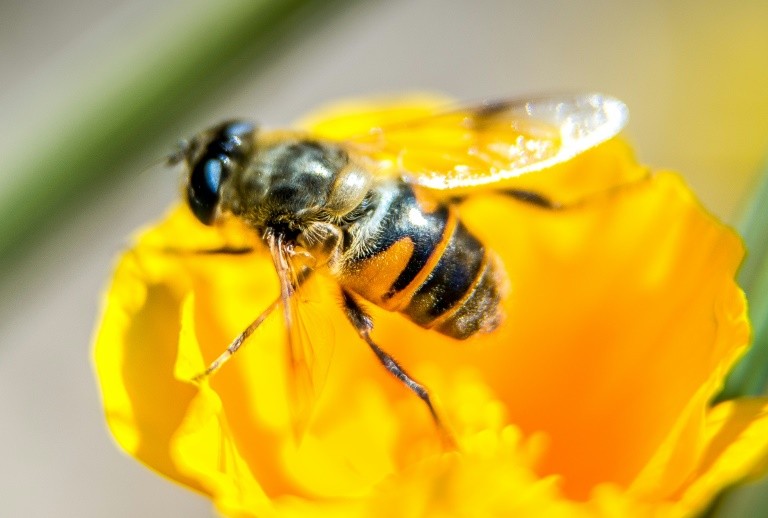Bees: The sale in France of Pesticides, Closer and Transform Suspended

Seized by environmentalists, the Nice Administrative Court suspended on Friday the permission to market two new pesticides.
Seized by environmentalists, the Nice Administrative Court , acting in chambers, suspended Friday for permission to market two new pesticides US manufacturer Dow accused of posing a risk to the health of bees.
Both pesticides concerned, Transform and Closer, already authorized by Dow in 41 countries, including the United States, Canada and South Africa, had been authorized for sale in late September by the National Health Security Agency (ANSES).
This authorization “is suspended until a ruling on the merits of its legality,” ruled the Nice Administrative Court, seized by the environmental group Future Generations . Dow and ANSES can appeal within 15 days.
Both pesticides covered are used to treat against aphids cultures in large fields and fruit and vegetables through the active substance, sulfoxaflor, presented by the association as “a new generation neonicotinoid” based on various scientific studies. Pesticides of the neonicotinoid family are about to be banned.
In his order, Judge Didier Sabroux based its decision on the precautionary principle enshrined in French and European law, which applies “where there is uncertainty about the existence and extent of risks.”
“Protective measures can be taken without waiting for the reality and seriousness of those risks become fully apparent”
He also noted that ANSES admits the toxic nature of sulfoxaflor to bees, whose population is “already fragile” and he believes that there is no certain guarantee that the two pesticides be spread exclusively by professionals trained and at the right dose. Specific recommendations for use of Dow recommend spreading at a rate of one dose per year and not less than five days before flowering.
Anses has received new scientific data that the ministries of Agriculture and Ecological Transition asked him in October to study under three months, he adds, this request ‘confirms the absence of certainty about the safety of this product, “said the judge.
“Danger to pollinators”
“We are very satisfied, it leaves a respite and the hearing date we looked forward to the bottom,” responded Nadine Lauverjat, Future Generations coordinator.
“The judge heard our arguments on the weaknesses of approval: the lack of confirmatory data and recommendations for use problematic. Determine when the plant will bloom (to choose the spray time, ed) is very complex and it shows how dangerous these products to pollinators, essential for plant reproduction, and which include bees”
At the hearing, the Assistant Director General of ANSES, Françoise Weber had indicated that additional data sent in August by the manufacturer at the request two years ago the European authorities do not bode at first sight of a withdrawal marketing approval.
The Dow manufacturer himself had challenged any confusion between neonicotinoids and sulfoxaflor presented instead as “more respectful of biodiversity.”
Subject to publication of the implementing decree, neonicotinoids will stay in France from September 1, 2018, according to the 2016 biodiversity law that provides for their ban with possible derogations case by case until July 2020.
In the 1990s, they were presented as a miracle solution and a safe alternative to pesticides of previous generations, had beautiful game to remind the audience François Lafforgue, Future Generations lawyer, calling not to “reproduce the same mistakes. ”
The Nice Administrative Court had jurisdiction because of the geographical location of the headquarters of Dow AgroSciences: phytosanitary branch of Dow Chemicals group being merged with the American giant Dupont is located in Sophia Antipolis, in Alpes-Maritimes.
Enjoyed this? Get the week’s top France stories
One email every Sunday. Unsubscribe anytime.


